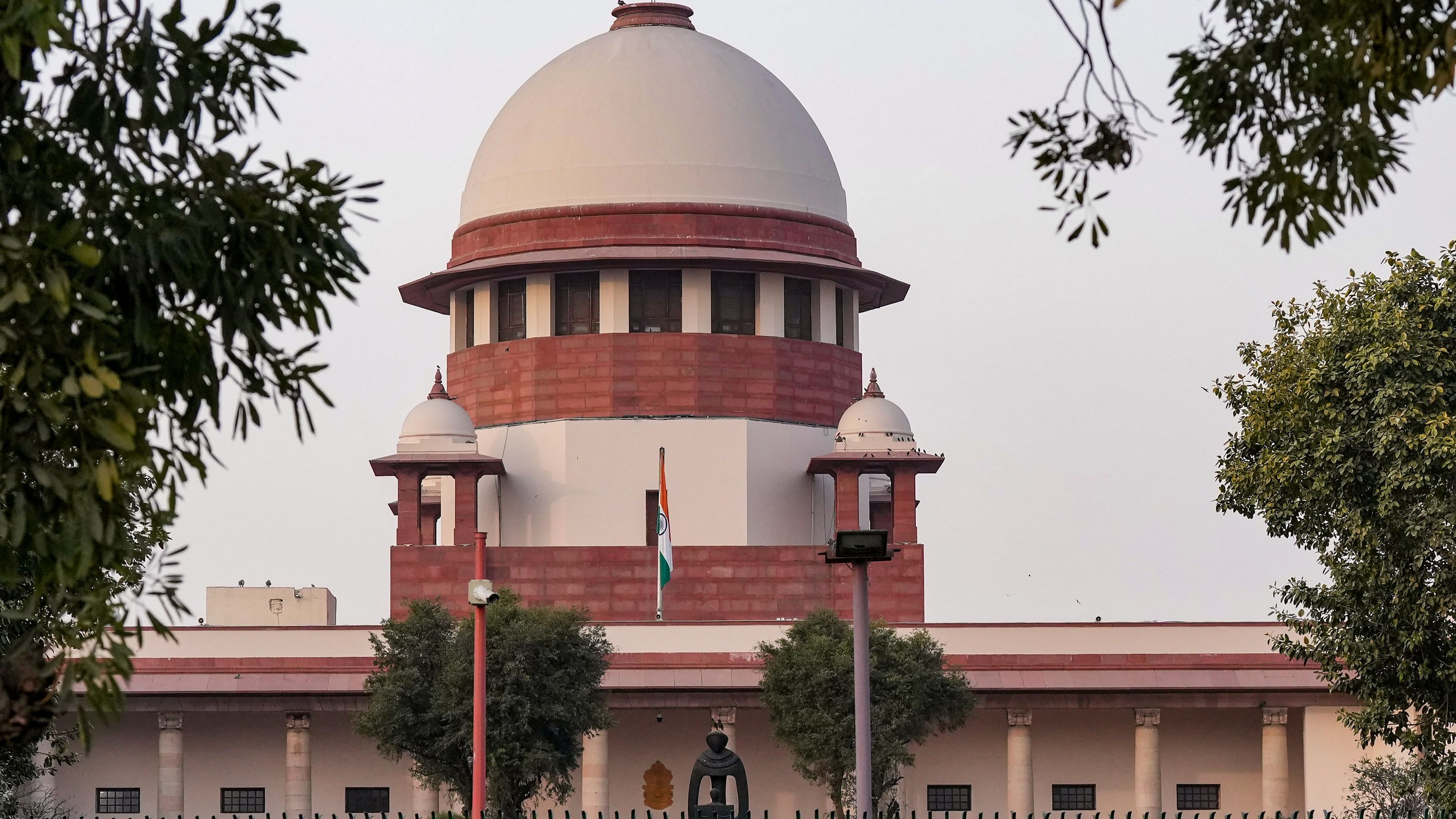
The Supreme Court of India.
Credit: PTI File Photo
New Delhi: The Supreme Court has said it can depart from the procedure as well as the substantive laws, while granting divorce to a couple living separately since 2019.
A bench of Justices B R Gavai, Aravind Kumar and K V Vishwanathan dissolved the marriage of the couple solemnised in 2013 after all efforts of mediation failed and the parties also said their marriage has broken down irretrievably.
Referring to the Constitution bench decision in Shilpa Sailesh Vs Varun Sreenivasan (2023), the bench pointed out that it has also been held that in exercise of power under Article 142(1) of the Constitution, the SC has the discretion to dissolve the marriage on the ground of its irretrievable breakdown.
This discretionary power is to be exercised to do ‘complete justice’ to the parties, when the apex court is satisfied that the facts established show that the marriage has completely failed and there is no possibility that the parties will cohabit together, and continuation of the formal legal relationship is unjustified, the bench pointed out.
In the apex court, the woman filed a transfer petition for shifting the proceedings pending under the Hindu Marriage Act before the court of the Principal Judge, Family Courts, Roorkee, Uttarakhand to the Family Court, Patiala House Courts, New Delhi.
Before the family court, the husband filed a petition under Section 13(1)(i-a) of the Hindu Marriage Act, 1955 for grant of decree of divorce alleging that the wife had breached the trust for maintaining a relationship with another man, despite advice against it.
He claimed the wife got a job as a teacher in July 2022, and since then, she had completely neglected him.
The petitioner-wife, on the other hand, contended that she had returned to the parental home due to the facts that he had neglected her and the daughter.
Going by the factual scenario, the bench said, "We are of the considered view that the exercise of the power under Article 142(1) of the Constitution is warranted to do complete justice between the parties particularly in the background of this court having noted herein that marriage between the petitioner and the first respondent has completely failed and the parties had not cohabitated from 2019 till date and there being no possibility that the parties will cohabitate in future."
The bench opined, continuation of the legal relationship would be unjustified and would not subserve the interest of the parties.
It also said the proceedings before the trial court could only be an ordeal which both the parties will have to undergo.
The court also noted that petitioner and first respondent are quite young namely 32 years and 38 years respectively and have future ahead of them.
The bench thus approved a settlement agreement arrived at as a sum of Rs 7,00,000 was deposited by the husband in the name of minor daughter. The man also agreed to pay a sum of Rs 13 lakh to the wife as permanent alimony.
